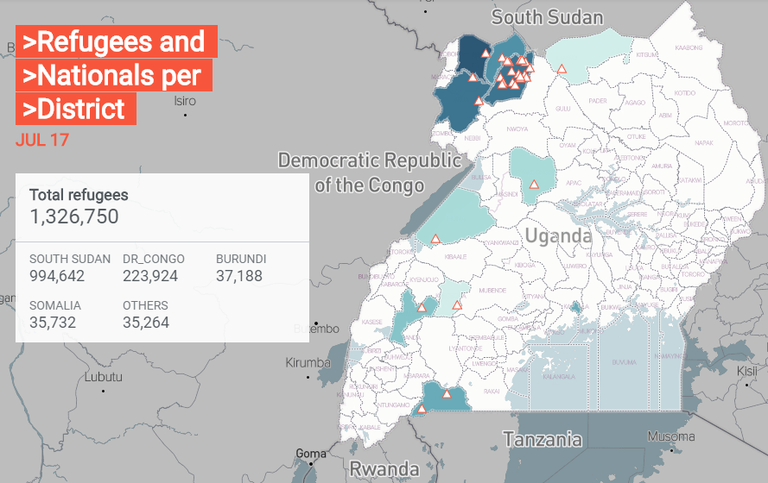Uganda is facing one of the world's largest migration crises with over 1.3 million refugees harboured in their territory.
In its northern neighbour, chronic famine and civil instability, including violence in the capital Juba in July 2016, have pushed nearly a million South Sudanese to seek refuge across the border. In the Democratic Republic of Congo to the west, ethnic tensions and violence between armed militias and the national army resulted in the exodus of more than 220,000 people.
To respond to this continuing influx of refugees, many camps have sprung up in the border regions of Uganda.
Télécoms Sans Frontières deployed a team in July 2017 to put its expertise to the service of assessments and to ensure that the refugee community and the humanitarian actors on the ground had the means to communicate at the heart of this crisis.
Most refugee camps have been built in areas at the edge of GSM commercial network coverage and have either no, or sporadic access to mobile networks.
In addition, many refugees were forced to flee in haste and thus left their phones behind. Many also have limited financial resources. The accumulation of these factors limits their possibilities to communicate with their loved ones.
Arriving in a foreign country after leaving everything behind, and often witnessing or suffering atrocities along the way, refugees are desperate to locate family members residing in different camps and reconnect with those who have remained behind in their country of origin. The support of a phone call often brings necessary psychological relief.
On site, the United Nations High Commissioner for Refugees (UNHCR) had already ensured that NGOs working in the camps had access to the Internet and had begun to replace their VSAT network with land lines provided by national telecom operators.
TSF assessed the need in the Imvepi and Rhino camps in the Arua Department where a gap in communication for the refugees was identified. On the one hand, the majority of newcomers did not have telephones and could not contact their relatives. On the other hand, older residents expressed the lack of access to community Internet centres to access information and other computer services such as e-mails, social networks, as well as scanning and printing official documents.
Although the need for information and family reunification is confirmed, a TSF intervention would only be possible through collaboration with organisations registered in Uganda. Potential partners are identified; nevertheless the discussions are still in the negotiation stage.


